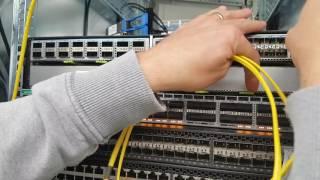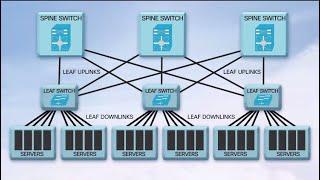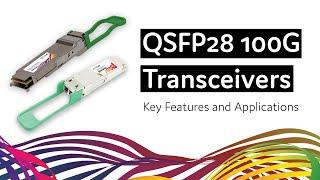Economics of Cybersecurity
Identify, measure and understand the economic factors that shape the information security decisions of today’s companies.
Register for Economics of Cybersecurity from DelfX and edX Professional Education at https://www.edx.org/course/delftx/delftx-econsec101x-economics-4691
About this Course
As our societies increasingly rely on information technologies, it has become critical to adequately secure online systems and services. The common view is that information security depends mainly on better technical designs. Measures like improved access control, cryptography or detection of malicious code would reduce our security problems.
The burgeoning field of security economics challenges this view. Security failures are caused at least as often by bad incentives as by bad design. This course provides an introduction to the field, delivered by four leading research teams. It will provide you with the economic concepts, measurement approaches and data analytics to make better security decisions, as well as understand the forces that shape the security decisions of other actors in the ecosystem of information goods and services.
The course covers four main areas:
Introduction to key concepts in the economics of cybersecurity. Here, we provide an overview of how information security is shaped by economic mechanisms such as misaligned incentives, information asymmetry, and externalities.
Economics of information security investment. We discuss and apply different economic models that help determine the costs and benefits of security investments.
Empirical research into security decisions and incentives of actors. We analyze data on firms in different markets, as well apply economic concepts to explain the strategies of attackers.
Policy and regulations. We discuss available economic tools to better align the incentives for cybersecurity, including better security metrics, cyber insurance/risk transfer, information sharing, and liability assignment.
EconSec101x offers a broad view of the field through lectures and exercises on empirical data that can apply to both early career professionals as well as senior technical managers. After finishing this course you will be able to apply economic analysis and data analytics. You will understand the role played by incentives on the adoption and effectiveness of security mechanisms, and on the design of technical, market-based, and regulatory solutions to different security threats.
After successfully completing EconSec101x you will:
Position yourself as a vital subject matter expert regarding the economic drivers that influence cybersecurity and position your company to propel forward and stay competitive
Engage confidently with management on opportunities and cybersecurity challenges faced by your industry; analyse emerging security threats and how these threats can be mitigated by effectively addressing real economic problems
Learn and assess the issues of investment in cybersecurity, making your company more productive while saving time and money.
Upon successful completion of this course, learners will be awarded a DelftX Professional Education Certificate. The TU Delft Extension School offers Continuing Education Units for this course. Participants of EconSec101x who successfully complete the course requirements will earn a Certificate of Completion and are eligible to receive 2.0 Continuing Education Units (2.0 CEUs).
Identify, measure and understand the economic factors that shape the information security decisions of today’s companies.
Register for Economics of Cybersecurity from DelfX and edX Professional Education at https://www.edx.org/course/delftx/delftx-econsec101x-economics-4691
About this Course
As our societies increasingly rely on information technologies, it has become critical to adequately secure online systems and services. The common view is that information security depends mainly on better technical designs. Measures like improved access control, cryptography or detection of malicious code would reduce our security problems.
The burgeoning field of security economics challenges this view. Security failures are caused at least as often by bad incentives as by bad design. This course provides an introduction to the field, delivered by four leading research teams. It will provide you with the economic concepts, measurement approaches and data analytics to make better security decisions, as well as understand the forces that shape the security decisions of other actors in the ecosystem of information goods and services.
The course covers four main areas:
Introduction to key concepts in the economics of cybersecurity. Here, we provide an overview of how information security is shaped by economic mechanisms such as misaligned incentives, information asymmetry, and externalities.
Economics of information security investment. We discuss and apply different economic models that help determine the costs and benefits of security investments.
Empirical research into security decisions and incentives of actors. We analyze data on firms in different markets, as well apply economic concepts to explain the strategies of attackers.
Policy and regulations. We discuss available economic tools to better align the incentives for cybersecurity, including better security metrics, cyber insurance/risk transfer, information sharing, and liability assignment.
EconSec101x offers a broad view of the field through lectures and exercises on empirical data that can apply to both early career professionals as well as senior technical managers. After finishing this course you will be able to apply economic analysis and data analytics. You will understand the role played by incentives on the adoption and effectiveness of security mechanisms, and on the design of technical, market-based, and regulatory solutions to different security threats.
After successfully completing EconSec101x you will:
Position yourself as a vital subject matter expert regarding the economic drivers that influence cybersecurity and position your company to propel forward and stay competitive
Engage confidently with management on opportunities and cybersecurity challenges faced by your industry; analyse emerging security threats and how these threats can be mitigated by effectively addressing real economic problems
Learn and assess the issues of investment in cybersecurity, making your company more productive while saving time and money.
Upon successful completion of this course, learners will be awarded a DelftX Professional Education Certificate. The TU Delft Extension School offers Continuing Education Units for this course. Participants of EconSec101x who successfully complete the course requirements will earn a Certificate of Completion and are eligible to receive 2.0 Continuing Education Units (2.0 CEUs).
- Category
- Tech Education Channel
Be the first to comment















